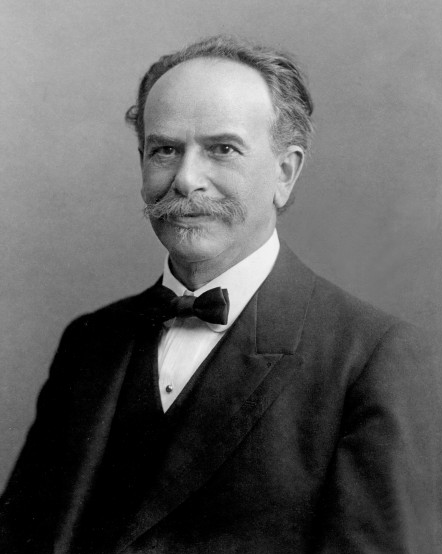 On July 9, 1858 the German-American anthropologist Franz Boas was born. To honor the man widely held as the "father of American anthropology" the American Anthropological Association offered a tribute for Boas today on their blog. What conveniently went unmentioned was the fact that the AAA censured Boas in 1918 for revealing that American anthropologists were covertly working as spies for the US government.
On July 9, 1858 the German-American anthropologist Franz Boas was born. To honor the man widely held as the "father of American anthropology" the American Anthropological Association offered a tribute for Boas today on their blog. What conveniently went unmentioned was the fact that the AAA censured Boas in 1918 for revealing that American anthropologists were covertly working as spies for the US government.
As Boas wrote to the editor of The Nation:
The point against which I wish to enter a vigorous protest is that a number of men who follow science as their profession, men whom I refuse to designate any longer as scientists, have prostituted science by using it as a cover for their activities as spies.
Boas was trained as a physicist (in which he eared his PhD from the University of Kiel in 1881) he was particularly interested in the problem of people's subjective experience in an objective world. It was while doing post-doctoral work in geography that Boas encountered the Inuit peoples of Baffin Island in northern Canada and began his career as an anthropologist.
Boas essentially created American anthropology as a science (rather than the gentleman's hobby it had been previously) and is primarily responsible for developing the concept of "cultural relativity" as a way to view non-Western peoples on their terms rather than imposing a European or American value system. He was passionate about the dignity of the people he studied and valued the trust between anthropologist and study population as integral to the discipline. When he discovered, in 1918, that American anthropologists were working as spies during WWI he was outraged and exposed what he viewed to be an outright abuse against science:
As anthropologist David Price wrote in The Nation:
Boas charged that four American anthropologists, whom he did not name, had abused their professional research positions by conducting espionage in Central America during the First World War. . . Anthropologists spying for their country severely betrayed their science and damaged the credibility of all anthropological research, Boas wrote; a scientist who uses his research as a cover for political spying forfeits the right to be classified as a scientist.
The most significant reaction to this letter occurred ten days later at the annual meeting of the American Anthropological Association (AAA), when the association's governing council voted to censure Boas, effectively removing him from the council and pressuring him to resign from the national research council.
As Price goes on to document, this was not the last time the AAA was involved with supporting espionage. During WWII most anthropologists were actively involved in the war effort and, in the post-war period, many continued this support by working directly with the OSS and newly created CIA. In the Church Committee Reports in the early 1960s it was discovered that CIA funding was involved in a third of all government grants for the social sciences. This is a relationship that has largely continued to this day.
As Price relates in his 2008 book Anthropological Intelligence:
Although few anthropologists have seriously examined their discipline's contributions to warfare, for over three decades anthropology's conscience has wrestled with its historical role as colonialism's handmaiden.
Whether it's their involvement in WWII, the Vietnam War, Iraq or as agents working on behalf of multinational corporations, the AAA members need to take seriously Boas' call for mutual trust and the importance of scientific non involvement in political affairs. As Boas concluded in his open letter exposing these practices:
They have not only shaken the belief in the truthfulness of science, but they have also done the greatest possible disservice to scientific inquiry. In consequence of their acts every nation will look with distrust upon the visiting foreign investigator who wants to do honest work, suspecting sinister designs. Such action has raised a new barrier against the development of international friendly cooperation.
The AAA does a disservice to Franz Boas' memory when they hold him up as a pillar of their history but fail to take seriously the values he championed.
- Log in to post comments

